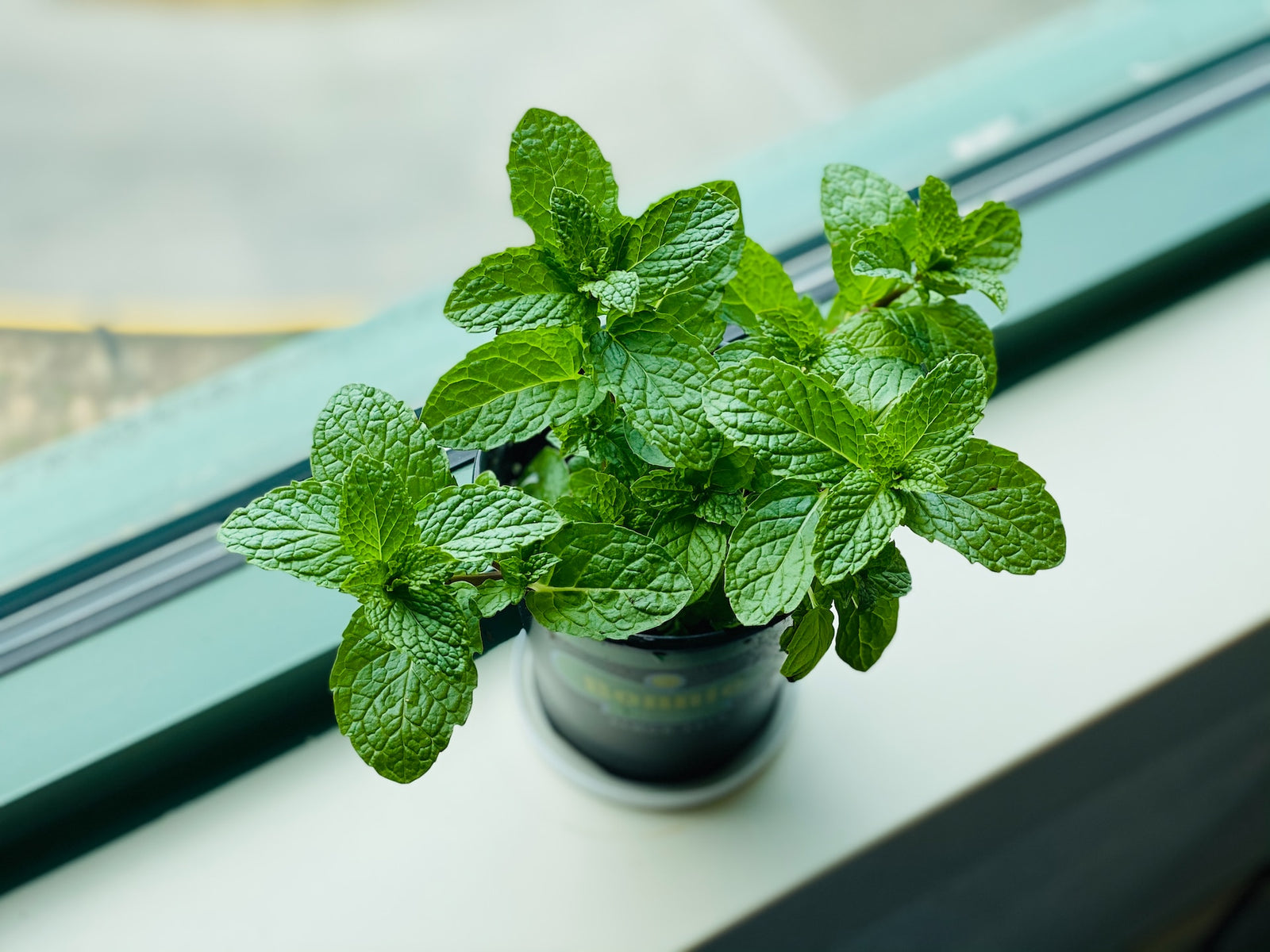Your Cart is Empty
Add description, images, menus and links to your mega menu
A column with no settings can be used as a spacer
Link to your collections, sales and even external links
Add up to five columns
Add description, images, menus and links to your mega menu
A column with no settings can be used as a spacer
Link to your collections, sales and even external links
Add up to five columns

Mint Mayhem: Growing Mint Responsibly
June 22, 2023 3 min read
Growing mint indoors offers a myriad of benefits, from having a fresh supply of this versatile herb at your fingertips to the delight of its invigorating aroma. However, it's important to be aware of the potential risks associated with mint's vigorous growth. In this blog, we will explore the joys of growing mint indoors while discussing the precautions needed to prevent it from spreading uncontrollably and choking out other plants.

Responsible Cultivation and Preventing Uncontrolled Spreading
While mint's vigorous growth is an advantage, it can also become a challenge if not managed properly. Here are some essential tips to ensure responsible cultivation:
1. Choose Containment
Opt for container gardening when growing mint indoors. Select a pot or planter that is at least 8-10 inches deep and wide, with adequate drainage holes. This restricts the spread of mint's rhizomes and prevents it from infiltrating other plantings.
2. Root Barriers
Place a root barrier, such as a plastic sheet or pot liner, beneath the potting soil before planting mint. This prevents the rhizomes from spreading horizontally and keeps them contained within the pot.
3. Regular Pruning
Consistent pruning is crucial for managing mint's growth. Trim back the stems and foliage regularly to prevent the plant from becoming leggy and sprawling. This promotes bushier growth and helps maintain the plant's compact shape.
4. Harvesting
Regularly harvest the mint leaves, which not only provides you with fresh herbs but also helps control the plant's growth. Frequent harvesting encourages new growth and prevents mint from becoming too invasive.

Caring for Mint Plants Indoors
To ensure your indoor mint plants thrive while remaining well-behaved, follow these care guidelines:
Lighting
Mint thrives in bright, indirect sunlight. Place your mint plant near a window that receives at least 4-6 hours of sunlight per day. If natural light is limited, supplement it with fluorescent grow lights to ensure adequate illumination.
Watering
Mint appreciates consistent moisture. Water the plant when the top inch of soil feels dry, ensuring the soil remains evenly moist but not waterlogged. Be cautious not to overwater, as excessive moisture can lead to root rot.
Temperature and Humidity
Mint prefers room temperatures between 65-75°F (18-24°C). Moderate humidity levels are ideal for its growth. If the air is dry, increase humidity by placing a tray of water near the plant or using a humidifier.
Soil and Fertilizing
Mint thrives in well-draining soil. Use a lightweight potting mix or create a blend with equal parts peat moss, perlite, and compost. Fertilize the plant with a balanced, water-soluble fertilizer every two to three weeks during the growing season.

Growing mint indoors provides a wonderful opportunity to have fresh herbs at your disposal while enjoying the convenience and versatility they offer. However, it's crucial to be mindful of mint's potential to spread aggressively if not managed responsibly. By following the tips and precautions outlined in this blog, you can cultivate mint indoors and prevent it from choking out neighboring plants or becoming invasive.
Remember to choose container gardening, use root barriers, and regularly prune your mint to keep it contained and well-behaved. Harvesting regularly not only provides you with fresh mint leaves but also helps control its growth and promotes healthier plants.
With the right care and responsible cultivation practices, you can enjoy the delights of growing mint indoors without worrying about it spreading like a wildfire. Embrace the joys of having fresh mint at your fingertips and savor the enhanced flavors it brings to your culinary creations. Happy mint-growing!

Subscribe
Sign up to get the latest on sales, new releases and more …



